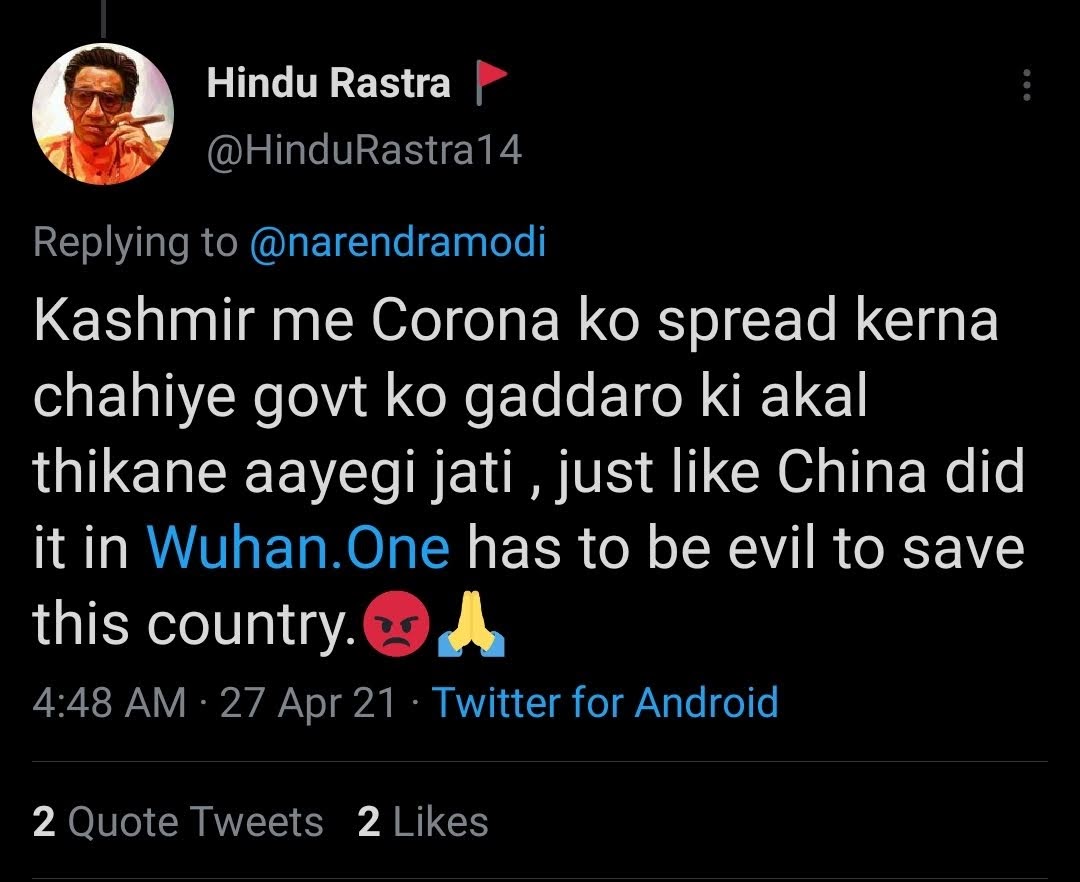By Huma Dar
July 3, 2021

Official figures rank India as second only to the United States at 30.50 million confirmed cases of Covid-19 and 401,050 deaths, with a mere 3.9% rate of full vaccination as of July 3, 2021. The New York Times reports a much graver situation, including an intensive study of three different antibody tests, called serosurveys, which convincingly demonstrate the utter gravity of Covid-19 pandemic in India. The in-depth scientific analysis of the serosurveys by NYT indicates that at the most conservative the estimated number of deaths in India is at least 600,000, with a more likely estimate of 1.6 million deaths, and a worst case scenario of 4.2 million deaths. Post-August 5, 2019, when India unilaterally derogated Articles 370 and 35A, after dismissing even the façade of the elected assembly in 2018, the Indian State has even more vigorously discriminated against the people of Jammu & Kashmir, particularly its Muslim population, especially in the form of explicitly prejudicial new land laws aimed at full-blown settler-colonialism. In a frightening feedback loop, the Indian state violence draws upon and abets Islamophobic violence against Muslims of Jammu & Kashmir at large, and includes a rising number of lynchings, the latest on June 21, 2021. The pandemic situation in Kashmir is thus exacerbated by a settler-colonialism aimed at “drowning Kashmiris once and for all.”
Continue reading “Kashmir Under Indian Settler-Colonialism in The Times of Covid: Myriad Ways to Annihilate A People”